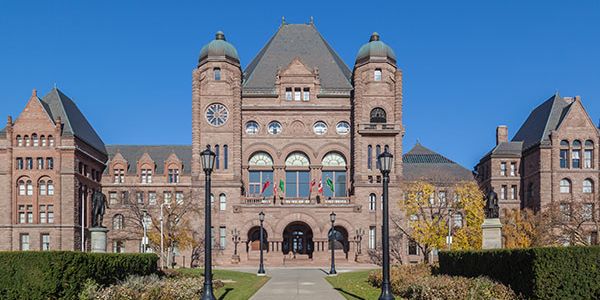In this edition:
- Government of Ontario will have $22.6bn in excess funds: FAO
- How population growth is affecting everything from jobs to housing in the economy
- Canada opens new economic immigration streams for skilled refugees
- Apprenticeship registrations in Ontario increased by record 24 per cent
- Chambers react to potential labour disruptions at Canada’s west coast ports
Government of Ontario will have $22.6bn in excess funds: FAO
The Financial Accountability Office of Ontario (FAO) has projected that the Province will spend $183.6 billion on programs in 2022-23, an increase of $13.2 billion (7.7 per cent) from the previous year. From 2022-23 to 2025-26, the government’s spending plan is $5.6 billion higher on average in each year compared to the FAO’s projection. This results in a cumulative $22.6 billion in excess funds that the FAO estimates are not required to support the cost of current programs and announced commitments. The $22.6 billion in excess funds is an increase of $10.8 billion from the FAO’s Winter EBO and reflects new funding added by the Province in the 2023 Ontario Budget.
Going forward, the Province could use the $22.6 billion in excess funds to introduce new programs, enhance existing programs or address spending pressures that could materialize. Alternatively, if the Province decides not to use the $22.6 billion in excess funds, then these funds would be applied to improve the budget balance and reduce the Province’s net debt.

How population growth is affecting everything from jobs to housing in the economy
Rapid population growth is challenging economists’ understanding of the economy as they monitor how businesses and consumers are responding to high interest rates.
The Canadian economy has outperformed expectations so far this year, avoiding the slowdown many forecasters were anticipating in response to the Bank of Canada’s aggressive rate hikes. The resilience of the Canadian economy prompted the central bank to raise interest rates again last week, saying that the risk of sticky inflation has risen.
But a closer look at the numbers shows high population growth is partly responsible for the strong economic results, potentially propping up the housing market at a time when high interest rates are supposed to suppress demand.
Canada opens new economic immigration streams for skilled refugees
The Honourable Sean Fraser, Minister of Immigration, Refugees and Citizenship, announced today that Canada has launched two new EMPP streams, fulfilling a commitment made on March 27, 2023. Candidates can also continue to apply through existing regional EMPP economic pathways.
These new immigration streams provide Canadian employers with the opportunity to access a talent pool of skilled refugees and other displaced people from around the world. This access allows Canada to not only increase its economic immigration and fill in-demand jobs, but also to complement its existing humanitarian commitments.
Apprenticeship registrations in Ontario increased by record 24 per cent
The Ontario government has increased apprenticeship registrations by 24 per cent in the last year – from 21,971 to 27,319 – as more people decide to pursue rewarding, well-paying careers in the skilled trades. In addition, the second year of the province’s highly popular skilled trades career fairs for students will be expanding to even more cities around the province.
“As we build a stronger Ontario that works for everyone, we need to ensure students and jobseekers know about the rewarding life-long careers waiting for them in the skilled trades,” said Monte McNaughton, Minister of Labour, Immigration, Training and Skills Development.
Chambers react to potential labour disruptions at Canada’s west coast ports
The collective agreements between the BCMEA and ILWU Canada on behalf of the Longshore Locals and Local 514 Ship & Dock Foremen expired on March 31, 2023.
A strike or lock out would disrupt West coast ports in British Columbia, including the largest port in Canada, the Port of Vancouver, and the Port of Prince Rupert. This would have immediate impacts across Canada’s already fragile supply chain in as little as two weeks. A breakdown in port operations would severely impact manufacturing, retail, agriculture, automotive dealers, and energy industries across the country.
The Canadian Chamber of Commerce and signatory chambers across the country, including the GNCC, have called on both parties to negotiate in good faith and reach an agreement at the bargaining table without any disruption to the supply chain.
Did you know?
Focus on Finance & Economy
Why we need to rewrite the script on corporate taxes
The script on corporate taxes needs to be rewritten. To borrow from economics Nobel Laureate Paul Krugman, such a script rests on “zombie ideas” that pander to corporate interests, harm the public interest and refuse to die.
The public shouldn’t have to delve into the technical aspects of taxation to participate democratically on the issue of corporate taxes. According to the authors of The Econocracy, the highly technical jargon of economics discourages citizen participation. But they argue economics are “too important to be left to the experts.”
Through the Daily Updates, the GNCC aims to deliver important business news in a timely manner. We disseminate all news and information we feel will be important to businesses. Inclusion in the Daily Update is not an endorsement by the GNCC.







